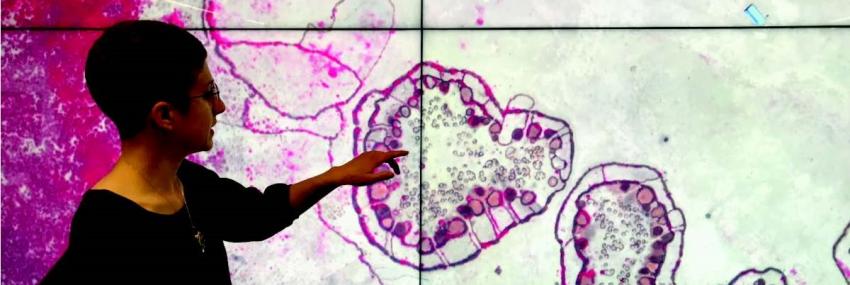Event Logistics
Following the annual Council of Voting Members business meeting, the Global Resources Collections Forum is an opportunity for representatives of CRL libraries to discuss and weigh in on CRL's programs and strategic agenda. The 2017 Collections Forum will be a webcast event. A recording will be available later for CRL members.
Session I Shaping CRL's Agenda: Licensing Global Data
Recording
1:00-2:30 p.m. Central Time
- One-off and ad hoc arrangements for the acquisition of data sets from vendors, and purchase and licensing terms poorly suited to academic needs.
- Increasing commercialization of public data and a lack of transparency in the data marketplace
- Merging of content with proprietary tools, analytics and services
- Inaccessibility of historical data, due to vendor purging of older data, and important historical data still locked in paper format
This session will explore how to address some of those challenges.
1:00 Dealing collectively with vendors of global data
Conflicting views have been expressed on the value of a consortium approach to purchase and licensing of large international databases. James Simon, CRL Vice President for Collections and Services, will explore the pros, cons and maybe's on the issue, and suggest how CRL might support the licensing of global news, finance, and population data. Simon will also give an update on the outlook for international cooperation in this realm. Comments by Greg Raschke, North Carolina State University.
1:30 Forming library partnerships with non-profit providers of critical international data
Academy-based and other not-for-profit organizations play an important role in the supply chain for population and demographic data. Lara Cleveland of Integrated Public Use Microdata Series-International (IPUMS) will discuss how academic libraries might support IPUMS in exposing more global census and opinion data, and converting historical data from print to digital form. Comments by Debra Bucher, Vassar College.
2:00 Supporting library dealings with vendors and data sources of GIS data
Licensing geospatial information for academic use is a particularly complex challenge. Many of the terms offered by GIS data vendors are poorly suited to scholarly needs and practices. Susan Powell of University of California, Berkeley, will examine prospects for developing standard principles and language for use in GIS data licenses and negotiations. Comments by Caitlin Tillman, University of Toronto.
2:25 Wrap-up and summary
Bernard Reilly, President, CRL.
Session II Shaping CRL's Agenda: Digitizing Global Collections
Recording
2:30-3:30 p.m. Central Time
2:30 CRL Digital Resource-building: an Update
CRL is a longstanding vehicle for the cooperative development of shared collections. Under the CRL umbrella, area microform projects (AMPs) and Global Resources programs have built a wealth of collections and digital resources for area and international studies. Through the CRL Purchase Proposal Program, member libraries nominate and vote on CRL acquisition of microforms and reprints. The print, microform and digital holdings thereby built are products of the expertise of specialists at libraries throughout North America. The eDesiderata platform, created in 2015 to support CRL licensing, is now an important tool for informed local investment in electronic resources. Bernard Reilly, President of CRL, will highlight how CRL proposes to further “democratize” its resource-building, involving members directly in setting digitization priorities.
2:45 The Global Collections Initiative
In September, 2016, The Andrew W. Mellon Foundation awarded CRL major funding for an international cooperative effort to dramatically expand electronic access to primary source materials and data for area and international studies. The new initiative will build upon the Global Resources and Area Materials programs based at CRL, in order to modernize the “supply chain” currently providing non-English language and non-Western materials to researchers worldwide. James Simon, Vice President for Collections and Services will report on the project.
3:00 The SAMP Open Archives Initiative
The SAMP Open Archives initiative was established in 2016 to create and maintain a collection of open access materials for the study of South Asia. This collaborative initiative aims to address the current scarcity of digital resources pertinent to South Asian studies and to make collections more widely accessible to North American scholars and researchers elsewhere in the world. Mary Rader, Assistant Director of Research / South Asia Librarian at the University of Texas at Austin, and chair of the SAMP OAi Executive Board, will provide an update on the initiative.
3:20 Questions and Comments

